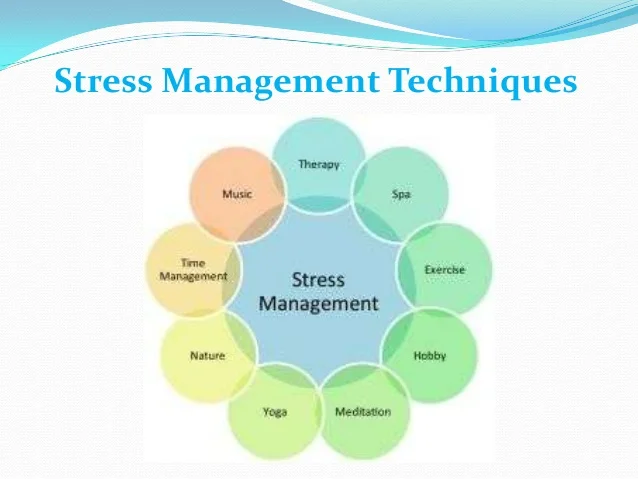How Stress Can Cause Weight Gain

Introduction
Stress is an unavoidable part of modern life, affecting individuals from all walks of life. Then the modern world cannot be considered complete without stress, which affects people of different ages and occupations. Even though stress is a function connected with feelings and psychological complications, it has physical effects as well, like weight gain. Stress and weight vary in that stress leads to changes in hormones, metabolism, and eating habits. It is necessary for carers to understand how stress leads to weight gain so that ways of combating these two elements can be found.
The Biology of Stress

Stress is an automatic response of the body to a threat or challenge as the body prepares to either fight or flee. This response happens through the hypothalamic pituitary adrenal (HPA) axis, and there is the production of stress hormones like cortisol, adrenaline, and other related hormones.
The Role of Cortisol
Cortisol is a hormone that is also known as the stress hormone, because it helps the body prepare for handling stress. This unit also plays a role in the metabolism process, commonly referred to as the maintenance of sugar levels in the blood, as well as the immune system. However, chronic stress can result in constantly high levels of cortisol, and this will have several impacts on the body, one of which is the promotion of the production of fats.
- Increased Appetite: High cortisol levels result in appetite stimulation, thus augmenting a person’s food intake. This is commonly known as “stress eating,” and characteristically, the eater has a weakness towards meals that are rich in calories, sugar, and fat.
- Fat Storage: Cortisol also enhances the accumulation of fat in the fatty tissues, with particular emphasis on the abdominal area. This kind of fat is known as visceral fat, and it is believed to cause insulin resistance, type 2 diabetes, and cardiovascular diseases.
- Metabolic Changes: It is worth mentioning that stress and, consequently, cortisol levels, have an impact on the metabolism, which takes longer to fuel itself. This can lead to weight gain even though the caloric value of the food has been taken in moderately.
Behavioral Changes Due to Stress

Stress even acts on the biological state and hence modulates behaviour in a way that promotes weight gain.
Emotional Eating
Stress management is one of the most critical issues in society, and as a result, many people eat junk food to help them cope with the stress. This behaviour, termed emotional eating, entails the consumption of substantial food portions, particularly those that are rich in sugar and fat, to manage negative customer emotions. It can thus be understood that emotional eating will, over time, lead to additional weight gain in an individual.
Disruption of Eating Patterns

Thus, stress contributes to irregularities in eating habits, which in one way or another reduce the standard daily meal regimen. If an individual is stressed, he or she may not eat because of the pressure, only to take excessively large portions when stomach premotions do kick in. This means that people with such habits are likely to develop a bad attitude towards their metabolism and gain weight.
Reduced Physical Activity
Stress also results to reduced physical activity among people Since stress and anxiety have adverse effects on a person’s well-being, it can be agreed that stress hinders physical activity. This leads to the conclusion that people under stress may develop a sedentary lifestyle, mainly because they may lack the energy to carry out exercises. This means that the number of calories that are burned goes down, and the muscle mass as well as the basal metabolic rates go down with it.
Sleep Disturbances

Stress is a major cause of sleep disorders; that is, it may cause either a lack of sleep or a disruption of deep sleep. Inadequate sleep acts as an additional method of contributing to weight gain and obesity in the following ways:.
Hormonal Imbalance
Lack of sleep impacts the proportion of hormones that are responsible for hunger and satiety. For instance, it shifts the leptin levels (the hormone that tells your body that you are full) down and, at the same time, raises the ghrelin levels (the hormone that tells your body that you are still hungry) up. Hormonal disorders can result in an increase in appetite arising from overeating.
Increased Cravings
This is because a degree of sleeplessness raises hunger and desires for calorie-, sweet-, and fatty foods. This causes sleep deprivation to interfere with the reward centres present in the brain, and because of this, people are more inclined to reach for comfort foods.
Decreased Energy Expenditure
As a result of a lack of sleep, people become tired, and due to this, they do not want to perform any kind of physical activity. This, in turn, minimises energy outlay, which is often responsible for weight gain.
Chronic Stress and Long-Term Weight Gain

When stress is, therefore, acute, it may cause slight weight loss in the short run due to inhibited appetite, but stress that is chronic in nature will favour weight gain. Since chronic stress results in high cortisol levels and the perpetration of such behavioural aspects that contribute to weight gain,.
Stress and Obesity
It is noteworthy to mention that researchers from different countries revealed a significant linkage between chronic stress and obesity. Hypo-performing employees, of whom there is high perceived stress, possess higher body mass indices (BMIs) as well as the measurement of the breadth of natural waist circumferences. In its detail, stress and obesity are significant factors that are associated in producing a connection that is both psychological and physiological.
Impact on Weight Loss Efforts
Stress is also known to interfere with one’s ability to lose weight in cases of chronic stress. In relation to chronic stress, people may experience changes in behaviour that make it harder for them to follow the right diet and exercise regimen. Further, stress results in a poor diet through instances such as emotional eating and sleepless nights, which contribute to massive calorie intake, making it hard for the body to lose weight.
Stress Management Strategies for Weight Control

Stress management is therefore deemed to be central, on the basis of which stress leads to weight gain. The following are techniques that can enable one avoid stress and achieve a slim body mass:
Also Read: The-10-best-foods-for-weight-loss
Mindfulness and Relaxation Techniques
They highlighted activities that include mindfulness meditation, deep breathing, and yoga because they assist in lowering stress levels. These procedures can help to reduce cortisol concentration and, thus, the risk of stress eating.
Regular Physical Activity
Stress and controlling weight are some of the ways that can be controlled by conducting regular physical activities. It also shown that exercise lower down the concentration of cortisol, mood enhanced and the metabolic rate is increased. They also concern routine, less intense activities like walking or swimming and state that it are helpful.
Healthy Eating Habits

To avoid stress and to ensure that the individual does not gain excess weight, it is important that the individual change their eating habits. This includes:
- Balanced Diet: Eating well by taking whole grain foods, lean meats, fruits, and vegetables can assist in controlling the blood sugar and the craving for bad foods.
- Regular Meal +: Times: Some ideas are; eating more frequently but in small portions; having a timetable of meal intakes so as not to overeat.
- Mindful Eating: On the actual choices and how they can avoid emotional eating, one can avoid it by adopting the mindful eating approach that involves observing the hunger and fullness levels and how one takes food.
Adequate Sleep
Healthy sleep is very vital in the management of stress as well as in controlling the over-accumulation of fats in the body. Consistency in going to bed and waking up, the use of a subtle pre-sleep routine, and having a cool, dark, and comfortable bedroom help prevent weight gain while enhancing sleep quality.
Professional Support
In cases of chronic stress and obesity, it is helpful for people to consult with health care providers, including therapists, dieticians, or trainers. These specialists can offer specific approaches and assistance for stress and weight loss since the issue may not be exactly the same for all.
Conclusion: How Stress Can Cause Weight Gain
This paper explores the association of stress with overweight: from biological Behavioural and psychological perspectives. Cortisol is a stress hormone, and chronic stress hence leads to a rise in cortisol level which increases appetite, fat storage, and metabolism.
Stress also affects dietary regimes, exercise regimens, and sleep, hence leading to weight gain. Stress management through mindful practices, exercise, a proper diet, proper sleep, and counselling will assist people to manage their weight and be healthy. Reading this article as well as other articles that analyse the connection between stress and weight gain, people can work to minimise stress and curb its ability to harm their bodies.